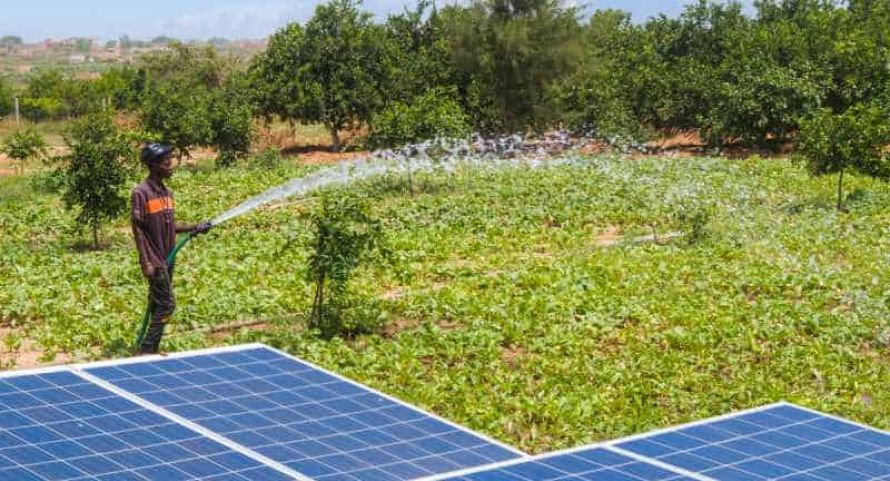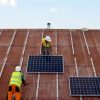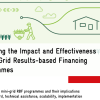Results based financing is helping farmers increase their harvests through solar pumps

Nearly 40 farmers have been able to purchase solar pumps through Green People’s Energy’s results-based financing approach, reporting crop increases of more than 100% in some cases. Not surprisingly, 50 additional farmers have now signed up as potential customers for solar pumps. And, with the help of Green People’s Energy, ten of these potential customers have already been able to purchase solar pumps.
Solar pumps have several advantages over the conventionally used diesel pumps. They entail little to no operating costs, which lowers production costs. Because of these lower costs, farmers are not forced to save on irrigation time and thus diesel costs. They can irrigate their fields sufficiently and regularly, often even increasing their acreage. As a result, they can improve the quality of their agricultural products and thus command higher selling prices. Solar pumps are also less prone to breakdown than diesel pumps and do not produce greenhouse gases or noise.
Mamadou Dia, a farmer from the village of Mbandji in the Potou area, who has been able to purchase a solar pump since January 21, 2022, thanks to Green People’s Energy, describes how these benefits show up in practice: “Since I installed the solar pump, I no longer had to buy fuel for the diesel pump. So I have more money available to manage daily expenses. With the solar pump, I was also able to expand my farmland from 0.5 to 1 hectare and can irrigate it regularly. Last year, I was able to achieve 3 tons of yield on 0.5 hectares. This year, I hope to get 8 tons on 0.5 hectares because there is enough water available.”
Accordingly, the demand for solar pumps in rural areas is high. However, the pumps are expensive to purchase. Rural farmers can therefore often only buy them if they have the option of paying in installments. This is where the results-based financing (RBF) approach of Green People’s Energy comes in, allowing installment payments of over 90% of the purchase price for end users – through a collaboration with a solar company and a microfinance institution. For a detailed explanation of the RBF approach from Green People’s Energy Senegal, see a previous article on the financing approach and its role in the Senegalese solar market.
Amath Biteye, the head of the microfinance institution involved, MECZOP, describes the RBF approach as follows: “It is a win-win partnership. The farmer or farmer’s wife gets a high-quality solar system on credit with good after-sales service. The solar pump supplier increases its customer base and secures repayment of its supplier credit by working with the financial institution. The financial institution, in turn, reaches more customers and can extend credit, despite having little liquidity of its own. Half of the price has already been pre-financed by GIZ, and the other 40% is in the form of a supplier credit.”
Green People’s Energy insisted that high-quality pumps, which are somewhat more expensive, be installed. The 39 farmers were so enthusiastic about the amount of water delivered by this type of pump that 50 more potential customers signed up on a waiting list to purchase it. The first ten additional producers have already been supplied with pumps of the same type via a pay-as-you-go approach, i.e. a sales approach that allows installment payments after the harvest, and through mediation by Green People’s Energy.





